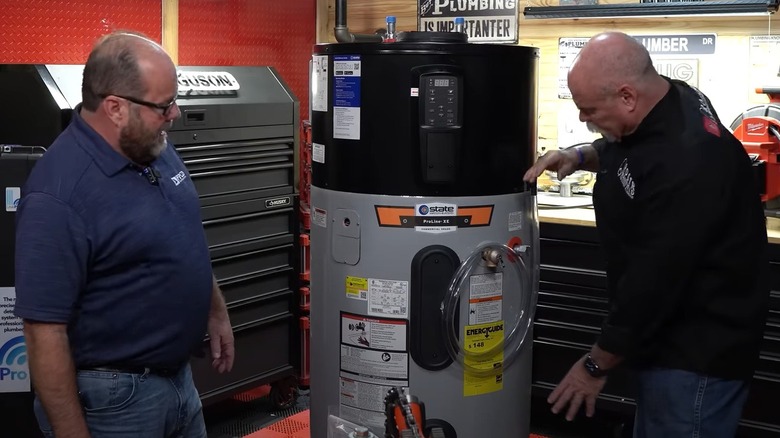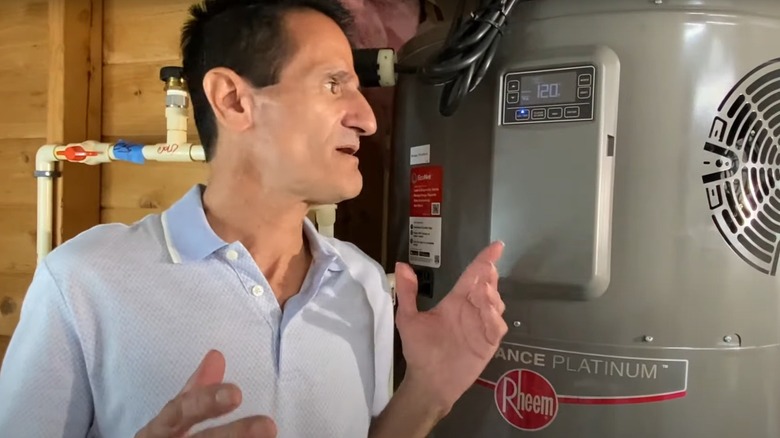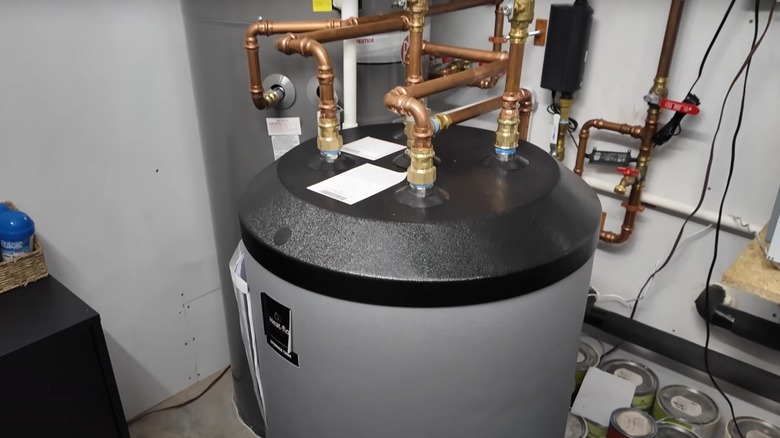What Is A Hybrid Water Heater? Plus The Pros And Cons Of Installing One
When you're in the market to replace a water heater, you can expect to pay anywhere from $1,600 to $5,400. If you're spending that kind of money, you want to be sure you're picking the perfect design to meet your needs. Which type of water heater is right for you? You might know about conventional tank-type water heaters, which are the most popular type. Meanwhilke, the tankless option is becoming more popular among homeowners because of its energy-efficient properties. However, don't make one of the most common mistakes everyone makes when buying a water heater and ignore a third design option — hybrid heaters. A hybrid water heater borrows technology from heat pumps, which are HVAC-type devices used to heat and cool your home. This combination creates an appliance that's more energy efficient than the tank-type models, which is its primary advantage. However, these heaters don't work too well in cold climates.
The hybrid model uses a tank to store water, borrowing from the tank-type style. And its primary heating method is similar to that of a heat pump — it pulls heat out of the surrounding air and uses it to increase the water temperature. The unit only runs periodically to maintain the desired temperature, though, which borrows from the way tankless models work. When the unit can't keep up with hot water demand, it uses an auxiliary electric heating element to quickly raise the water temperature. If you're noticing signs that you need to replace your water heater, consider these pros and cons of hybrid heaters as you choose your new device.
Advantages of selecting a hybrid water heater for your home
Perhaps the biggest advantage of a hybrid water heater is the low cost of operation. Because it pulls heat from the surrounding air and only occasionally uses the electric heating element, it requires less power to operate and saves on heating costs. You might be able to save about half on the operational costs with the hybrid model compared to a traditional tank-style water heater. For a family of four, the Energy Star estimates the annual savings to be about $550 with the hybrid model. Meanwhile, the running costs of tankless and hybrid water heaters are almost identical. Additionally, heat pump water heater installations are often eligible for a federal tax credit of 30% of the installation cost, or $2,000 (whichever is smaller).
Another benefit of selecting a hybrid water heater is that it works similarly to a dehumidifier when used in an enclosed space up to 700 square feet. As the heater pulls warmth from the air, it removes humidity, too. Also, these heaters are easy to install because many models can use a standard 120-volt outlet and don't require special breakers. In contrast, electric tank water heaters need a 240-volt dedicated circuit with a 30-amp breaker. Tankless heaters often require a 120-amp breaker, and you might need help from an electrician to upgrade your home's circuit panel to handle the power load.
Why you might not want to install a hybrid water heater
The biggest disadvantage of using a hybrid water heater is that you're limited to electric models. These heaters cannot run on natural gas. So, if you are replacing a gas-powered water heater with a hybrid model, you will need to hire a plumber to cap and seal the gas line or remove it entirely.
If you want to use a hybrid water heater, you need a large room to install and operate it. Manufacturers will recommend using these appliances in rooms with at least 450 to 700 cubic feet of available space. They need a large volume of warm air from which to draw heat. Low-ceiling rooms don't work well, either, because the heat pump sits on top of the unit. Hybrid water heaters are poorly suited for homes in cold climates, where they struggle to draw enough heat from the air. Many people operate them in the room where the furnace resides. In warm climates, some people will install them in carports or garages to ensure there's enough heat and air.
Finally, you might want to steer clear of the hybrid water heater design because it's not as widely installed and hasn't been tested over time as much as its traditional and tankless counterparts. Although the first hybrid water heater patents appeared in the 1930s, these heaters really did not become widely used until 2010, when new energy-usage rules from the U.S. Department of Energy came into effect. You might feel nervous about using such new technology when tried-and-tested options, like tank and tankless water heaters, have served the nation for decades.


